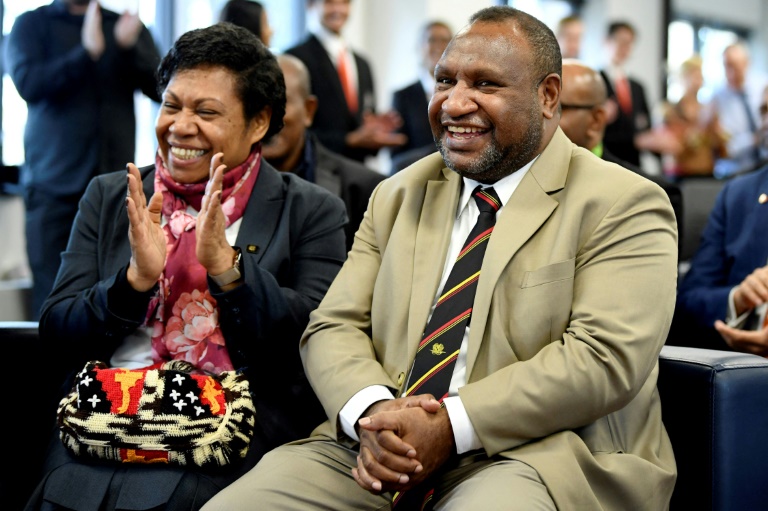Papua New Guinea prime minister Marape re-elected

Papua New Guinea’s Prime Minister James Marape was sworn in for a second term on Thursday
Port Moresby – Papua New Guinea’s Prime Minister James Marape was sworn in for a second term Tuesday, after an election hit by violence and alleged corruption that also ended a five-year absence of women in parliament.
Marape won support from a majority of members in the newly elected parliament in this mountainous, forest-covered Pacific island.
“I now declare that the member for Tari-Pori, honourable James Marape, has been elected as prime minister-elect of the independent state of Papua New Guinea,” newly re-elected speaker Job Pomat said.
Members of parliament applauded as Marape crossed the floor to shake hands with opposition members.
Among the newly elected members were Rufina Peter and Kessy Sawang, the first female candidates confirmed to have secured a seat in parliament.
Their victories marked a return of women to national politics after no women won seats in the previous election of 2017.
It is a “proud moment,” said Peter O’Neill, leader of the People’s National Congress of which Rufina Peter is a member.
“Our mothers, girls and women in PNG and in fact the whole Pacific region have a true champion, an experienced woman in Parliament,” O’Neill said in a statement.
Voting ended on Friday but the count is still underway in some seats in the country, which is rich in resources but suffers from widespread poverty.
About 10,000 police, army and corrections services personnel were mobilised for the vote.
In one politically motivated attack on July 26, a machete-wielding gang chased down two victims outside a counting centre, leaving one with a traumatic brain injury and another with a wounded limb.
Commonwealth election observers have called for an “urgent review” of the voting process, citing missing names from the electoral roll and multiple allegations of bribery.
In an ethnically diverse country with more than 800 languages, voters traditionally focus on the material benefits candidates can bring to their communities.
